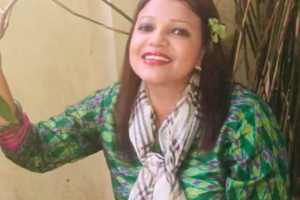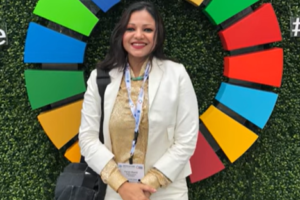Thousands of scouts at an international event in South Korea are being evacuated from a campsite due to an incoming tropical storm.
Several countries including the UK had already left, blaming high temperatures and poor sanitary conditions at the camp.
UK Scouts chief executive Matt Hyde said he felt let down by organisers and UK activities had been set back years.
The site had become a health risk, he told the BBC.
Attended by more than 40,000 young people from 155 countries, the World Scout Jamboree has been plagued by problems from the very start.
Hundreds had fallen ill amid 35C (95F) heat, with scouts from the UK among those affected by heat exhaustion.
The British group of 4,500 people, the largest in attendance, arrived at the campsite in Saemangeum near the town of Buan last week.
They were moved to hotels in the capital Seoul over the weekend, where they will remain until the jamboree finishes on 12 August.
Mr Hyde said the relocation will cost the UK Scout Association well over £1m from its reserves.
“We had commitments to those reserves that will of course mean that we can’t now do things that we wanted to do over the next three to five years,” he said.
The US and Singapore have also already pulled their teams from the campsite.
World Scout Jamboree organisers said on Monday that the South Korean government told them it was no longer safe to hold the event.
The government said it had listened to the concerns of the World Organisation for Scout Movements and national delegations, who had been requesting they close the site for days.
From Tuesday at 10:00 local time (01:00GMT), some 36,000 people still in Saemangeum will be taken by bus to safer areas, South Korea’s vice minister for disaster and safety management, Kim Sung-ho, has said.
The event “is still continuing,” but “the location is only changing because of the natural disaster,” he added.
Officials are seeking alternative venues and accommodation in and around Seoul.
Severe Tropical Storm Khanun, which has already forced evacuations and cut off power to thousands in Japan, is forecast to reach South Korea’s southern Jeolla province on Thursday.
Originally classified as a typhoon, the weather system has weakened but is still bringing high winds and torrential rain to the region.
Heatwaves have become more frequent, more intense, and last longer because of human-induced climate change. Increased sea surface temperatures also mean storms are likely to be more intense and bring more extreme rainfall.
Coaches of British teenagers started arriving back in Seoul – around 120 miles (197km) from the campsite – on Saturday.
Mr Hyde said the UK contingent was focused on running an “engaging programme” from their young people from the capital.
He said the UK Scouts feel let down by the organisers after repeated concerns were raised about conditions at the site. While there were some improvements it was “too little too late”.
Conditions breached four red lines around a lack of shade, lack of food for those with dietary needs, poor sanitation and insufficient medical services, he added.
“We were promised things were going to be put in place and they weren’t,” he said.
“If you can imagine [toilets] that are being used by thousands and thousands of people that are not being cleared with the regularity you would expect, you can imagine the sort of things that people were seeing.”
Each British scout had spent around £3,500 on the trip, with many relying on fundraising, he said.
Planning of the event may have been affected by the Covid pandemic, Mr Hyde said, adding it was “critical” an independent review was carried out.
One parent told the BBC concerns about the event were raised two weeks ago when torrential rain fell and flooded Saemangeum, a reclaimed tidal flat.
Vincent Blood, whose daughter fell ill at the event, said: “How on earth are you going to go from a flooded site to something that’s adequate and going to provide this superb experience the kids have been looking forward to?
“Our fears have now been justified.”
John Coleman, 57, from Liverpool, said what was meant to be the “trip of a lifetime” for his teenage daughter – who celebrated her 17th birthday at the event – had “turned into a disaster”.
He told the BBC their whole family had contributed to fundraising efforts for the £3,500 cost of sending her on the trip, but she has “not got what we paid for”.
The BBC has seen emails sent to the parents of young people on the trip by UK Scouts.
One email sent on 31 July before the scouts arrived at the site said an inspection revealed it was not ready “as we would have expected”.
Parents were told facilities were “improving continuously” on 2 August, two days before a decision to leave was taken citing numerous problems on the site.
The BBC has been told that some scouts are now sharing five to a room, while up to 250 spent a night in the ballroom of one Seoul hotel due to a lack of available accommodation. All now have hotel rooms.
The head of the country’s ruling People’s Power Party, Kim Gi-hyeon, issued a public apology on Monday and proposed an investigation into whether taxpayers’ money had been well spent on preparations.
The jamboree, described as the world’s largest youth camp, gathers scouts from around the world every four years, each time in a different country.






















